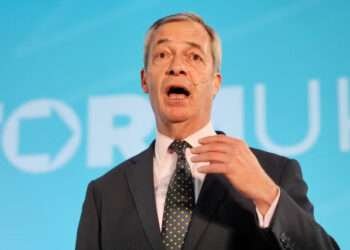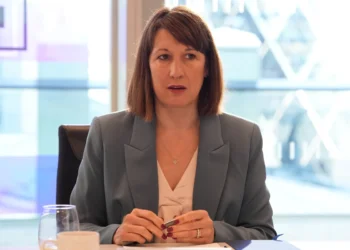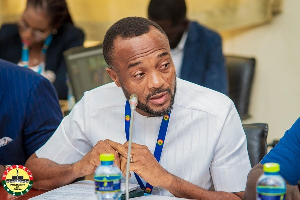Former Prime Minister Liz Truss made waves during a one-off appearance at the Tory conference, asserting that the Conservative Party would have performed better in July’s general election had she remained in office.
Truss, who resigned after just 49 days in Downing Street, blamed internal opposition from her party and interference from the financial establishment for her premature exit and the failure of her economic policies.
Truss argued that her controversial 2022 mini-budget, which was heavily criticized for its unfunded £45 billion in tax cuts, would have led to lower taxes, higher economic growth, and reduced energy costs through fracking. She insisted that the budget failed due to forces beyond her control, not the plan itself.
Moreover, Truss declined to endorse any of the four current Conservative leadership contenders, instead expressing her admiration for Argentina’s far-right president, Javier Milei.
She went so far as to suggest that Milei would have been her preferred candidate for the Tory leadership. Truss also refused to rule out a return to frontline politics, saying, “I’m not going to give up on this fight.”
When asked whether the Conservative Party under her leadership would have performed better in the election compared to Rishi Sunak, Truss confidently replied, “Yes, I do.” She attributed the rise of Reform UK—a right-wing party advocating for Brexit and lower immigration—to draining Tory votes.
“When I was in No. 10, Reform was at 3% in the polls. By the time we got to the election, they were at 18%. We promised change, but we didn’t deliver.”
Liz Truss
Truss even blamed Reform for Labour’s surprise win in her own South West Norfolk constituency, claiming that her constituents did not consciously choose a Labour MP but were instead frustrated with the Conservatives’ failure to deliver on promises.
Calls for Radical Change
Despite her confidence, Truss acknowledged that winning the general election would have been difficult even if she had remained prime minister. “It would have been a very tall order, but I think our best chance of winning would have been to have kept Boris,” she said, referring to former Prime Minister Boris Johnson.

Since stepping down, Truss has repeatedly pointed fingers at institutions like the Bank of England and the Office for Budget Responsibility (OBR) for causing the market turmoil following her mini-budget announcement. “It was complete economic illiteracy to blame me,” she said, adding that taxes were at a 70-year high when she took office, and the national debt was rising.
“I tried to turn that around, but the mini-budget was never fully implemented because institutions like the Bank of England sought to blame their mistakes on me,” Truss explained. She also criticized the media and what she called “the political class in Britain” for supporting this narrative.
Truss called for the OBR to be abolished entirely. “Conservatives won’t succeed until we get rid of the Office for Budget Responsibility,” she declared, emphasizing that her mandate as prime minister had been clear when Conservative members elected her over Sunak.
Truss also urged the current Tory leadership candidates to adopt more radical policies, such as scrapping or amending the Human Rights Act and the Equality Act. She emphasized the need to tackle “the wokery marching through our institutions” and what she described as a human rights culture embedded in government.
READ ALSO: Stonebwoy Unveils The Backstory Behind ‘Jejereje’ Song





















